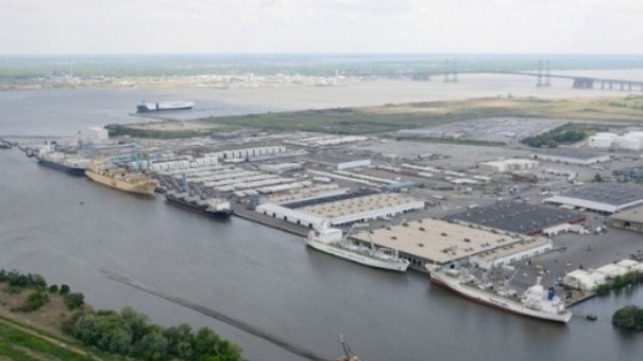Ongoing Inspections Find Destructive Insects at Mid-Atlantic Ports

U.S. Customs and Border Protection agriculture specialists at the ports in Philadelphia, Pennsylvania, and Wilmington, Delaware, recently intercepted two destructive insect pests as part of the regular agriculture inspection program ongoing at U.S. ports. CBP agriculture specialists conduct these inspections to ensure food safety and to protect against invasive insects, plant and animal diseases, and invasive weeds that could harm the nation’s agriculture.
According to CBP, its agriculture specialists during their inspections of tons of imported commodities caught two highly invasive species that could have been potentially harmful to the area’s farms. In a shipment of Brazilian grapes, they found an insect commonly known as a seed bug. Two days later, while inspecting a shipment of Costa Rican pumpkins they identified another pest commonly known as a cucumber moth.
Samples were sent to the U.S. Department of Agriculture (USDA) entomologists for further testing. They identified the seed bug found in the grapes as a first-in-port discovery in the Delaware Valley region. As such, it was a new local pest threat which meant that it could have been especially harmful to local agriculture.
Stopping the pest was the latest result of the annual effort by CBP agriculture specialists at the combined ports of Philadelphia and Wilmington, where they reviewed documents for over 71,000 agriculture shipments while inspecting an additional 26,000 shipments to ensure that the commodities were free from pests, contaminants, and pathogens. During fiscal year 2020, they cleared more regulated agriculture cargo than any other CBP seaport port of entry. The volume at Philadelphia and Wilmington is more than twice that of the next busiest seaport, which is Port Everglades, Florida.
The seaport facilities in Pennsylvania, Delaware, and New Jersey rank first for 17 imported produce products, including fruits and vegetables such as apples, avocados, bananas, grapes, lemons, oranges, and pineapples from Central and South America. The area seaports attract these volumes of perishable imports because they provide good intermodal access meaning that the produce can reach the mid-Atlantic population of 60 million people in a matter of hours, and almost a third of the U.S. population in under a day, by truck or rail car.
To combat the threats posed by invasive insects and weeds, CBP collaborates with importers, shippers, terminal operators, shipping lines, and customs brokers to implement mitigation strategies. In the ports of Philadelphia and Wilmington, CBP agriculture specialists implement a risk-based sampling and focus on inspecting higher-threat agricultural commodities.
